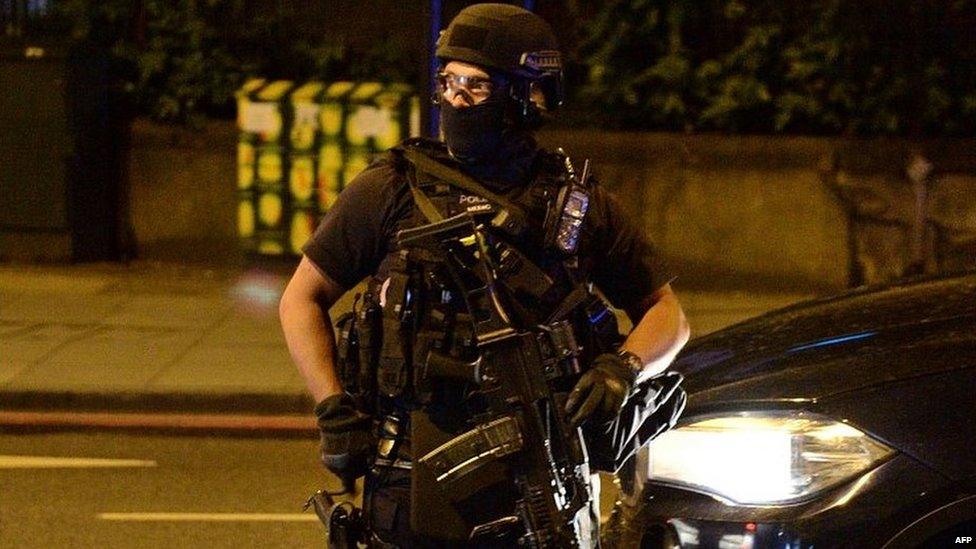Brexit: MPs warn of multiple obstacles to EU security deal
- Published

A longer transition period after Brexit may be needed to guarantee continued security co-operation, MPs have said.
The Commons Home Affairs Committee said the UK and EU should remain open to extending the transition phase after the UK's exit beyond December 2020.
It warned the EU against limiting co-operation to existing law enforcement and intelligence sharing and said the UK must go beyond its own "red lines".
Theresa May wants a new security treaty to take effect at the start of 2021.
The UK's decision to leave the EU in March 2019, following the 2016 referendum vote, has called into question its future participation in EU-wide crime-fighting bodies such as Europol and law enforcement agreements such as the European Arrest Warrant extradition scheme.
The government has said it wants a new special security partnership with the EU which will maintain the existing level of co-operation on tackling serious crime and terrorism.
'Lack of planning'
In a new report, the cross-party committee welcomed efforts to replicate current ties on Europol, the European Arrest Warrant and data sharing, but warned of complex legal and technical barriers in the way.
It said the UK should not assume that because it played a leading role in Europol and in intelligence-led policing on the continent that it would secure a more far-reaching deal than the EU has with other countries.
"This attitude, along with lack of planning for alternative scenarios, suggests that the government is at risk of sleep-walking into a highly detrimental outcome," it said.
Yvette Cooper, the Labour MP who chairs the committee, said "just because we all want something, it doesn't mean it will happen, unless enough work is put in in time to overcome the genuine legal, constitutional and political obstacles we have uncovered".
The EU and UK have agreed, in principle, to a time-limited transition or implementation period that will last until the end of 2020 - during which the UK will abide by EU rules and regulations.
The government said both sides were committed to maintaining "deep levels" of co-operation after Brexit and that it expected formal negotiations on a new security partnership to begin soon.
"The draft agreement reached with the European Commission earlier this week means security cooperation with the EU can continue through the implementation period up to December 2020," a spokesman said.
"We will be looking to secure a comprehensive new treaty on internal security co-operation that can begin directly after."